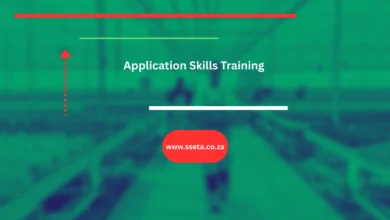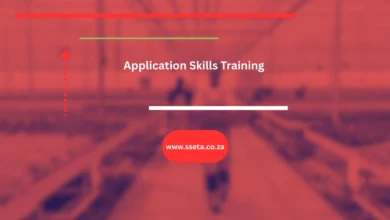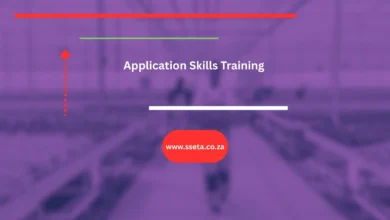Unlock Your Potential: SETA Accredited Work Integrated Learning Opportunities in 2025

In today’s fast-changing job market, practical experience has become just as valuable as academic knowledge. For South African students and professionals aiming to build sustainable careers, Work Integrated Learning (WIL) presents one of the most powerful ways to bridge classroom theory with workplace reality.
WIL is more than just an internship. It is a structured form of learning that combines academic studies with professional practice, allowing learners to gain hands-on skills, workplace readiness, and industry exposure. In South Africa, many of these programs are SETA-accredited, ensuring that they meet strict quality standards and align with industry demands.
This guide explores everything you need to know about SETA Accredited Work Integrated Learning in 2025—what it means, why it matters, the opportunities available, and how you can use it to build a strong career foundation.
Understanding SETA Accreditation and Why It Matters
What is SETA Accreditation?
SETA stands for Sector Education and Training Authority. Each SETA oversees skills development and training in a specific sector of the economy, such as finance, IT, agriculture, or manufacturing.
When a program is SETA-accredited, it means:
- The training meets national standards.
- The skills taught are relevant to the industry.
- Learners gain qualifications that are recognized across South Africa.
Accreditation ensures that WIL programs are not only structured and reliable but also directly connected to real employment needs.
Why Choose SETA Accredited WIL?
For learners, SETA-accredited WIL programs provide:
- Job readiness: Practical experience that employers actively look for.
- Nationally recognized qualifications: Certificates and credits that enhance employability.
- Career direction: Exposure to real workplace environments helps learners understand whether a career path suits them.
For employers, accredited programs mean:
- Access to talent trained according to industry-aligned standards.
- A cost-effective way to evaluate and recruit skilled individuals.
- Contribution to skills development targets and compliance requirements.
The Value Proposition for Employers in 2025
One of the key challenges in South Africa remains the skills gap—the mismatch between what job seekers know and what employers need. SETA-accredited WIL programs directly address this issue.
In 2025, companies that invest in WIL will benefit from:
- A pipeline of skilled workers tailored to their sector.
- Enhanced workplace productivity through motivated learners.
- Opportunities to test potential full-time employees before making long-term commitments.
For example, a company in the IT sector might host WIL students as junior developers. These learners contribute to ongoing projects while being mentored, and many are later offered permanent employment.
Key SETA Accredited WIL Opportunities for 2025
Work Integrated Learning opportunities vary across sectors, offering different entry points depending on your career interest.
1. Information Technology (IT)
Supported by the MICT SETA, IT WIL programs are in high demand. Roles often include:
- Junior software developer
- Data analyst assistant
- Cybersecurity support
- Network technician trainee
Given the rapid digital transformation across industries, IT WIL learners will continue to enjoy strong employment prospects.
2. Finance and Accounting
The Services SETA accredits many programs in finance and business services. Typical WIL placements include:
- Bookkeeping trainee
- Audit assistant
- Payroll support
- Financial analysis intern
These positions equip learners with technical and compliance skills crucial in the finance industry.
3. Manufacturing and Engineering
SETA-accredited WIL in manufacturing often covers:
- Machine operators
- Quality assurance trainees
- Production planning assistants
- Electrical or mechanical technician roles
Learners gain exposure to large-scale operations while developing technical competence.
4. Healthcare and Social Services
WIL programs in this sector include placements in hospitals, clinics, and social development organizations. Learners might assist in:
- Patient administration
- Laboratory support
- Community outreach projects
These experiences help prepare students for professional roles while also serving vital community needs.
5. Emerging Sectors
South Africa’s economy is also seeing growth in renewable energy, data science, and digital marketing. Learners who pursue WIL in these areas will not only gain practical exposure but also future-proof their careers by entering industries expected to grow in the coming decade.
Work Integrated Learning for Different Career Stages
WIL is not only for students completing their first qualifications. It can be valuable at different points in a career journey:
- Students and Graduates: Gain first-time industry exposure and practical skills.
- Mid-Career Professionals: Upskill or reskill to remain competitive.
- Career Changers: Transition into a new sector with the help of structured workplace training.
For instance, a teacher moving into renewable energy might enroll in a SETA-accredited WIL program focused on solar panel installation. Through hands-on training, they can confidently transition to a new profession.
Navigating the Application Process
Step 1: Identify Suitable Programs
Start by researching programs accredited by the SETA that aligns with your career interest. Use:
- APPLICATION PROCESS
- Career offices at universities and TVET colleges
- Industry job boards and recruitment portals
Step 2: Prepare Your Application
A strong application should include:
- A well-structured CV highlighting relevant skills.
- A cover letter explaining your motivation and career goals.
- References from academic or previous work experiences.
Employers value enthusiasm and a willingness to learn, so highlight your commitment to growth.
Step 3: Understand Learner Agreements
Every WIL program requires a learner agreement, which specifies:
- The duration of the placement.
- The skills to be developed.
- Whether stipends or allowances are provided.
Learners should review these agreements carefully to know what is expected of them and what they will gain.
Benefits and Outcomes of SETA Accredited WIL
Enhanced Employability
Learners with WIL experience stand out in the job market. Employers are more likely to hire candidates who have proven they can apply their knowledge in real workplace settings.
Skill Development
WIL helps learners build:
- Hard skills: Technical expertise such as coding, financial reporting, or machine operation.
- Soft skills: Teamwork, problem-solving, communication, and adaptability.
These combined skills are critical in meeting the evolving demands of today’s workforce.
Economic Contribution
SETA-accredited WIL programs don’t just help individuals—they strengthen South Africa’s economy. By producing skilled, job-ready workers, these programs reduce unemployment and drive innovation.
Planning Your WIL Journey in 2025
1. Set Clear Goals
Before applying, decide what you want from your WIL experience:
- Gaining industry-specific technical skills.
- Building professional networks.
- Exploring a new career direction.
2. Research the Right Providers
Choose WIL providers with:
- Recognized SETA accreditation.
- Strong industry partnerships.
- Structured mentorship programs.
3. Build a Professional Network
During your WIL, take every opportunity to connect with colleagues, mentors, and industry professionals. Networking can open doors to future job opportunities.
Conclusion: Invest in Your Future Through WIL
As South Africa moves into 2025, SETA-accredited Work Integrated Learning programs remain one of the most effective ways to prepare for meaningful employment. They provide practical experience, recognized qualifications, and a clear path to career growth.
For learners, these programs mean improved job prospects and valuable workplace exposure. For employers, they provide access to trained, motivated talent. For the nation, they build a more skilled workforce capable of driving economic progress.
The question is not whether WIL is valuable—it is how quickly you will seize the opportunity. By exploring SETA-accredited programs today, you are investing in a stronger, brighter career tomorrow.



